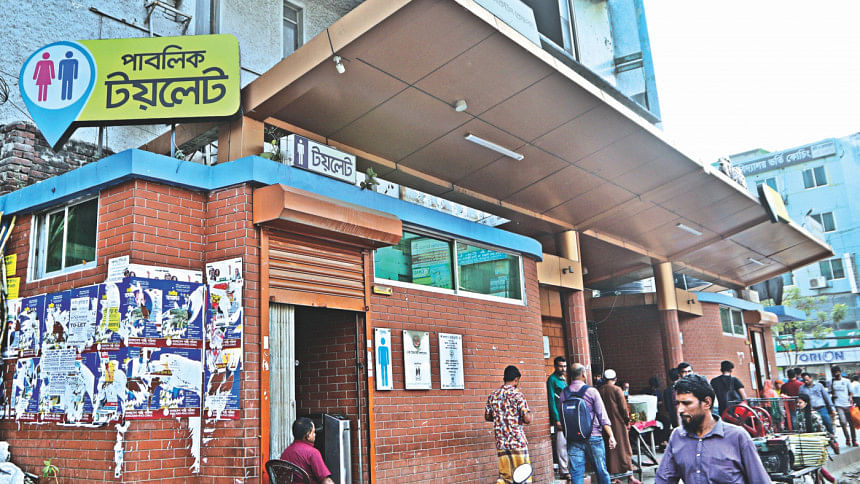World Toilet Day 2019: 53 public toilets for a city of 2 crore people

Just a few years ago, clean public toilets with modern facilities were a pipe dream in Dhaka. The few toilets located across the capital were dingy stalls with no facility to wash hands, let alone special arrangements for women and persons with disability.
However, ensuring clean and accessible sanitation is a core part of Sustainable Development Goal-6. Today is World Toilet Day, initiated to inspire action to tackle the global sanitation crisis and reach SDG-6 by 2030.
The sanitation situation in Dhaka has improved since 2014, after city authorities set up the first “Good Public Toilet” or GPT (with sink, mirror, waste bin, etc) at Gabtoli Bus Terminal with assistance from the Bangladesh chapter of WaterAid.
Since then, the two city corporations have built 53 GPTs -- 28 in south and 25 in north Dhaka. But the initiative brought little respite to this city of two crore.
Anannya Rahman, a social worker, said, “Hygienic environment inside a toilet is a necessity -- particularly for women and children. The city corporation has built women-friendly toilets but they are very few in number. Women often have to go long hours without using toilet when outside.”
Theatre artist Rimu Siddique said she hardly drinks water when she is not home, as she fears that she may not find a clean, accessible toilet.
“Drinking less water can cause kidney complications. Holding urine for a long time is one of the key causes of urinary tract infection and women are more prone to it,” said Dr Tuhin Binte Halim of Railway General Hospital.
According to a recent survey by Bhumijo, a social enterprise working on urban sanitation, 80 percent of women in Dhaka avoid drinking water before leaving home.
Abolishing the practice of open defecation is a key focus of SDG-6, where a provision stresses “paying special attention to the needs of women and girls and those in vulnerable situations.”
Given the current situation, it seems that the country is not on track towards reaching this particular SDG, opines Ziaur Rahman, a senior project officer at Work for a Better Bangladesh Trust.
“For a population of two crore, 53 public toilets are not enough. Slum dwellers are using unhygienic toilets and children are still often defecating in open spaces, thus contaminating water and soil,” he told The Daily Star.
Women need to use the toilet at least four times a day, he said citing a research by his organisation.
“One has to pay Tk 5-10 for using public toilets. For an insolvent woman, it is difficult to pay every time she uses the toilet. Moreover, women cannot use overcrowded toilets frequented by men.”
Raju Basak, project manager at WaterAid, said, “City corporations have built toilets suitable for women and persons with disability. But there should be more.”
Dr Tariq Bin Yousuf, chief urban planner at Dhaka North City Corporation, said, “We have the plan and budget to build more public toilets but there is scarcity of land. We are trying our best to resolve this issue.”

 For all latest news, follow The Daily Star's Google News channel.
For all latest news, follow The Daily Star's Google News channel. 



Comments